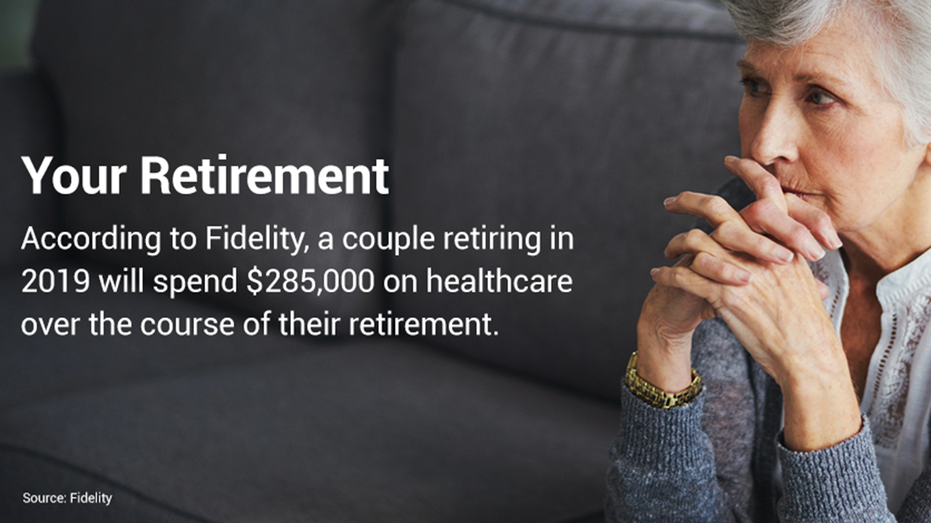5 big money mistakes to avoid
Mistakes are part of the human condition; it's impossible to avoid them 100 percent of the time. But financial mistakes are in a class of their own — they tend to have a snowball effect and get worse over time. A seemingly small money mistake in your 20s can have outsized consequences in your 30s, 40s, and into retirement.
67 percent of Americans are worried about their financial situation.
That could explain why money worries are the No. 1 source of stress among adults. A survey by the American Psychiatric Association showed 67 percent of Americans are worried about their financial situation.
You can reduce your chances of becoming a financial stress statistic by avoiding these major money mistakes.
Living without a budget

This is money management 101. At every stage of your life, you must have a plan for your money and how you'll spend and invest it. You may not always stick to your budget — life happens, after all — but without one, you'll never achieve financial security.
It's usually not one big financial catastrophe that ruins your long-term security, it's continually living above your means and failing to curb unnecessary spending.
Unnecessary spending comes in two flavors: overbuying the big things (houses, cars, even college educations) and nickel-and-diming your budget to death by compulsive spending on things like dining out, clothing or home furnishings.
No matter how much you're earning, create a budget to live within your means, and update it whenever there's a change in your financial situation. Discipline yourself (and your spouse, if you're married) to stick to it by recording your income and expenses every month.
Buying more house than you can afford

Homeownership is treated like a rite of passage in America, but you don't have to own the biggest, most expensive house the bank thinks you can afford. Being house poor has real-life, long-term consequences.
If you're devoting half your take-home pay to your mortgage, you probably aren't funding your emergency savings adequately, which means you'll need to take on debt whenever a large, unexpected expense comes up.
Even worse, you're probably short-changing your retirement savings, missing out on untold lost returns. You can never recover the opportunity costs of postponing or underfunding your retirement savings.
GET FOX BUSINESS ON THE GO BY CLICKING HERE
A good rule of thumb is to spend no more than twice your annual household income on a home. You may be able to make the payments, but only at the cost of your long-term financial security.
Treating your retirement account as a piggy bank

"That lost $16,000 would be worth $118,000 at retirement."
Many employer-based 401(k) plans include a low-cost loan option, and this is actually not a good thing. Although it sounds better to "borrow from yourself," especially when the interest is also returned to your account, the facts tell a different story.
First, the money you borrow isn't generating any returns in your investment account, which can add up to big money over the long haul due to the effects of compounding. If you borrow $50,000 for seven years from an account earning 8 percent per year, that's over $16,000 in lost earnings. Suppose you have 25 years to retire, and your retirement account continues to grow 8 percent per year. That lost $16,000 would be worth $118,000 at retirement.
Second, research shows that most people lower their monthly retirement contributions while they're making payments on a 401(k) loan, so it's a double whammy to your retirement account. Do yourself a favor and don't finance major purchases with your retirement account.
Neglecting your career

What do you think is your most valuable asset? If you guessed your house, you're wrong. The average person will earn over $2 million over the course of a working lifetime — the average person will not own a $2 million home.
With careful management and a decent stock market, your $2 million in earnings could be worth $5 million by retirement. If you don't maximize your earning potential, or go through periods of sustained unemployment, you could easily end up with half that or less.
Know the career path in your chosen profession and take the necessary steps to get to the next level. Don't quit your job unless you have a better one lined up. If you think your current job is stressful, being unemployed with a mortgage, car payments, and family to care for is stress on steroids.
Not planning for medical costs in retirement

Most people don't understand their Medicare coverage and the costs involved. Original Medicare doesn't cover routine expenses for vision and dental care, and there are no benefits for long-term care or custodial care.
Take advantage of health savings accounts to tuck aside extra cash for medical expenses in retirement, and don't leave your Medicare planning to chance. Costs and coverage vary significantly between Original Medicare and private Medicare Advantage plans. Do your research and find the right plan for your health and financial situation.
The bottom line
Everyone makes mistakes, but some are more damaging than others. Take control of your finances now and get in the habit of making informed financial decisions.
If you're not sure about an aspect of money management, don't be afraid to consult an accountant, banker, financial advisor, or insurance professional.




















